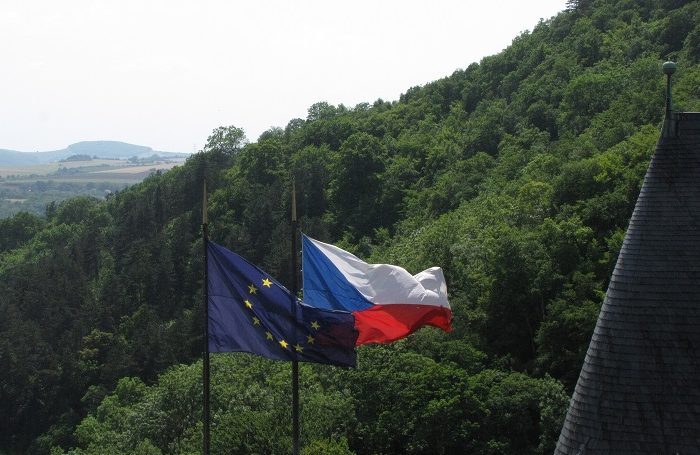
The morning of 24 June 2016 was not a good one. Having watched the BBC online till late at night, I could have made use of a couple of more hours of sleep. But the main reason for my bad morning was the confirmation of what the first results had hinted at the night before – the victory of the Leave camp and the end of the European Union as we had known it. As a person with family ties to Britain and one who has spent his whole career studying and teaching about the EU, I feared that I may have been slightly emotional. Yet, an informal working breakfast in which I participated that morning, together with a number of Czech think-tankers, academics, government officials, and MPs, showed me that I was not the only one feeling that way.
For some reason, that has never been entirely clear, the United Kingdom became very important in Czech politics after 1989. Economically, Germany has always been the country’s most important partner. Politically, overcoming the disputes, both historical and current, with Germany and Austria was of key importance, as was maintaining good relations with fellow countries in Central Europe and naturally, building a strong bond to the United States. But the United Kingdom was referred to regularly: The Czech economic transformation was managed by self-proclaimed Thatcherites, the Czechoslovak presence in the Battle of Britain was one of the arguments used in support of the claim that Czechs had always naturally been part of Western civilization and they should “return to Europe” after years of being uprooted artificially.
After the Czech accession to NATO and the EU, the United Kingdom turned out to be one of the most important allies for Czechia, both on policy and in politics. On policy, the Czechs shared the British cautiousness about the EU’s common security and defence policy and insisted that no development at the EU level should question the predominance of NATO for European security, nor discourage US engagement in Europe. The Czechs also aligned with the UK on many economic issues, in particular in effort to further liberalise and complete the internal market as well as in promoting liberal approach to foreign trade. Having been a heavily industrialized country for the last 150 years, Czechs were ready to revisit the EU’s common agricultural policy too. Last but not least, Czechs were not ready to adopt the euro and the UK became a natural and important partner in protecting the influence of the “rest” against the rising power of the Eurozone.
In politics, the party of the civic democrats who led the Czech government between 2006 and 2013 were staunch political allies of the Conservatives in the European Parliament. Together they left the EPP/ED group and established a new group of European Conservatives and Reformists. Although they have since lost influence and seats in both Czech and European parliaments following domestic scandals, the civic democrats have been able to shape Czech political debates on the EU and skew the Czech view of European integration towards the traditional British Eurosceptic positions.
Brexit has been received in various manners by the Czechs. A small, but loud group of those who consider the EU to be a totalitarian body encroaching on national prerogatives welcomed Brexit as a blow to the Brussels supranational elites, hoping further that others will follow the UK and dismantle the despised organisation for good. Those who see an emerging European state as the answer to all problems were perplexed by what they considered an incomprehensible move by one of the leading European states. And those who consider the EU as a tool to provide for Czech needs and interests saw it as a problem that may potentially lead to serious trouble if not treated correctly. This was also the lesson from the post-Brexit breakfast that I attended. Most of the debate was not about the UK at all. It was about the Czechs and about how to navigate in the new European environment.
Brexit shows how interconnected the European Union has become. The British domestic issues, or even intra-party struggles, that led to Brexit are now challenging politics and policies in other member states. In Czechia, the leaders of the parties represented in parliament have been able to meet and agree upon a single Czech position for the upcoming negotiations. This is, to my knowledge, the first issue on which a cross-party consensus was possible to build within the realm of European politics in the Czech Republic. But Brexit has also launched a more general Czech debate, which is long overdue, namely on what the Czech position in the EU and on the EU is and should be. Finally, we have started debating publicly about what the Czech priorities are and how and from which position these priorities can be better promoted.
Czechs often claim that they share a sense of humour with the British. The whole of Monty Python’s production is very popular in Czechia and even less famous shows, such as the Black Books and Miranda, can be found regularly on Czech television schedules. I have always belonged to those who could happily spend the night discussing whether the Monty Python’s Life of Brian is better than the Monty Python and the Holy Grail or whether the Dead Parrot sketch is funnier than the Ministry of Silly Walks. On Brexit, however, I must admit, and I believe that I speak for many Czechs when I say: I just do not get the joke.
Further Reading on E-International Relations
- Brexit and the 2019 European Elections
- The Days of May (Again): What Happens to Brexit Now?
- Grexit and Brexit: Lessons for the European Union
- Brexit Britain in the Transatlantic Standoff: Bridging the Gap?
- Post-Brexit EU Defence Policy: Is Germany Leading towards a European Army?
- An ‘Expert’ Perspective on Brexit… Means Brexit